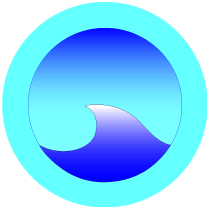
The extent to which the atmosphere represents an important pathway for various pollutants and natural substances from Europe and North Africa towards the Mediterranean Sea and subsequently affects its biogeochemistry remains largely unknown. Some of these substances, such as lead, mercury and some chlorinated hydrocarbons, when carried into the sea by the atmosphere are potentially harmful to marine biological systems. Others, such as nitrogen species, phosphorus and iron, are nutrients and may enhance marine productivity. Atmospheric inputs thus exert many different effects on the Mediterranean environment.
ADIOS is a focussed pan-European study of the atmospheric deposition and impact of pollutants, key elements and nutrients on the Mediterranean open sea. The research aims at understanding the magnitude, timing and geographical distribution of the atmospheric fluxes of these compounds to this ecologically sensitive marine environment. Some of the most important questions that ADIOS addresses are:
Two motivations govern this project. First, and of societal relevance, is the fact that the effects of human activities on the oceans is one of the areas of greatest public interest. The Mediterranean is a clear example of a sea at risk, and an increasing number of pressures put now its integrity at stake. However, the scale of the problem has not been fully quantified or understood. Establishing a baseline of quality in terms of input loads, contamination levels and biological status and effects will be a useful starting point of improvement. The second motivation is scientific. The present-day temporal and geographic variation in open ocean chemistry is, so far, largely due to natural oceanic processes rather than human activities. But for early detection, prediction, and potential mitigation of human impacts, it is essential to distinguish these human influences from the natural background variations, which is only possible if natural variability is thoroughly characterised and understood in terms of the governing processes. It is presently difficult to identify any impact of anthropogenic inputs of nitrogen and metals to the open ocean via the atmosphere, although such inputs are known to occur and could potentially affect primary productivity. No concerted scientific programme aimed at directly elucidating these effects has yet been set up, and most efforts deployed so far were limited to the coastal zone and still presented a fragmented approach.
Return to the home page of ADIOS by clicking on the icon at the top of this page.